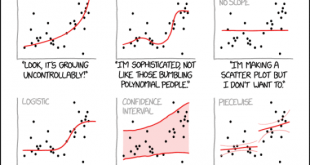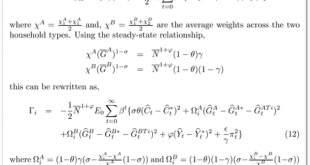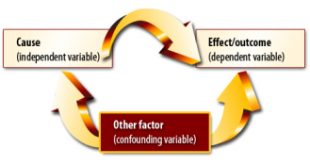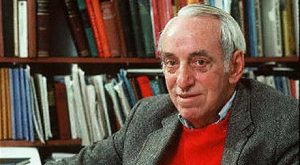Advertisements
Read More »Søndag
[embedded content] Advertisements
Read More »Die Dynamik des Rechtsrucks
Die Dynamik des Rechtsrucks Zehn Jahre lang, Woche für Woche, wurde ich merkwürdigerweise nicht müde, diese Nachweise immer und immer wieder abzuliefern. All die Jahre meinte ich, durch meine Tätigkeit als politische Kommentatorin unmittelbaren Einfluss auf den Meinungsbildungsprozess nehmen zu müssen … Erst werden sie reden, dann werden sie handeln. Wir müssen Rassisten, wo immer sie auftauchen, entlarven. Auf keinen Fall schweigen, nicht wegducken....
Read More »How do models relate to reality?
How do models relate to reality? [embedded content] Advertisements
Read More »De Evige Tre
[embedded content] Advertisements
Read More »New Keynesian nonsense ‘proofs’
New Keynesians use mathematics to ‘prove’ some very odd stuff … Take, for example, a paper by Campbell Leith and Simon Wren-Lewis entitled Electoral Uncertainty and the Deficit Bias in a New Keynesian Economy. The thrust of the paper is that our particular form of party-based democracy naturally leads to ‘deficit bias’ … The authors identify the root problem to be one of ‘heterogeneity’ — the fact that different political parties will have different views about how to run the...
Read More »Requiem for my friend (personal)
Requiem for my friend (personal) [embedded content] Bengt Nilsson In Memoriam A friend is someone who knows all about you and still loves you Advertisements
Read More »Erdogan und die andere Türkei
Erdogan und die andere Türkei [embedded content] Advertisements
Read More »Instrumentalvariabler och heterogenitet — en kommentar (wonkish)
Instrumentalvariabler och heterogenitet — en kommentar (wonkish) Användandet av instrumentalvariabler används numera flitigt bland ekonomer och andra samhällsforskare. Inte minst när man vill försöka gå bakom statistikens ‘korrelationer’ och också säga något om ‘kausalitet.’ Tyvärr brister det ofta rejält i tolkningen av de resultat man får med hjälp av den vanligaste metoden som används för detta syfte — statistisk regressionsanalys. Ett exempel från...
Read More »RBC — nothing but total horseshit!
RBC — nothing but total horseshit! They try to explain business cycles solely as problems of information, such as asymmetries and imperfections in the information agents have. Those assumptions are just as arbitrary as the institutional rigidities and inertia they find objectionable in other theories of business fluctuations … I try to point out how incapable the new equilibrium business cycles models are of explaining the most obvious observed facts of...
Read More » Lars P. Syll
Lars P. Syll





